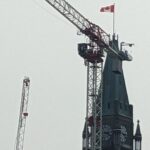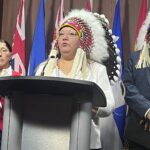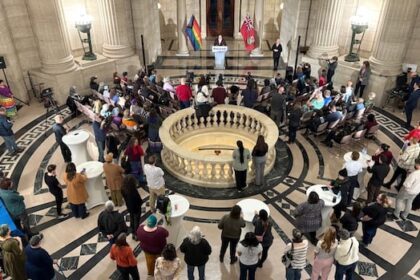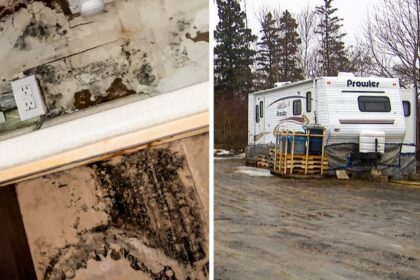A controversial LNG project in British Columbia received its environmental assessment certificate from the provincial government Tuesday despite First Nation leaders and environmental groups being “gravely concerned” about its approval. They say the Ksi Lisims liquid natural gas (LNG) export project (part of Prime Minister Mark Carney’s push to double LNG Canada as a “nation-building” project) ignores the right of Indigenous Peoples to free, prior and informed consent (FPIC). “Rather than being met with partnership, we are given an ultimatum: accept fossil fuel expansion or be pushed aside. LNG Canada is not only a massive source of greenhouse gas emissions but also drives destructive fracking, further threatening our lands, waters, and communities- emissions do not recognize territorial boundaries,” says Union of BC Indian Chiefs (UBCIC) President, Stewart Phillip in a news release. “Through resolution, the UBCIC Chiefs Council has recognized the health and environmental hazards of the fracking/LNG industry. We reject any process that tramples our inherent and constitutionally protected title and rights, ignores free, prior and informed consent, and sacrifices the climate for foreign corporate profits.” UBCIC says billions in subsidies have already gone into the project while LNG Canada’s foreign-owned partners have yet to commit to financing Phase 2. The groups which include the David Suzuki Foundation and the Skeena Watershed Conservation Coalition among others, cite an analysis by Clean Energy Canada, saying “LNG Canada Phase 1 will cause $400 billion CAD in climate harm over the full course of the project lifecycle. Combined with Phase 2, the cost of its climate harm soars to almost $1 trillion CAD.” According to the groups, documents submitted to B.C.’s energy regulator show the project has three proponents: the Nisga’a Nation, Rockies LNG and Western LNG. However, these documents specify “that the entity that will construct, own and operate the assets of the Project” is a wholly-owned subsidiary of Texas-based Western LNG that was formed in 2021 to develop the project. The Nisga’a Nation, on the other hand, welcomes news of the approval certificate being granted. “This milestone reflects the strength of Indigenous leadership and our commitment to sustainable economic self-determination,” says Eva Clayton, president of Nisg̱a’a Lisims Government. “Ksi Lisims LNG represents a transformational opportunity for all participating B.C. Nations, and it will be developed in line with our Nation’s high environmental standards. This is what reconciliation looks like: a modern Treaty Nation once on the sidelines of our economy, now leading a project that will help write the next chapter of a stronger, more resilient Canada.” According to the B.C. government the facility is expected to have the capacity to export approximately 12 million tonnes of liquefied natural gas every year to overseas markets in Asia where demand for cleaner fuels continues to grow. The Ksi Lisims LNG export project is reliant on construction of the 900-km Prince Rupert Gas Transmission (PRGT) pipeline, which was granted a substantial start by the B.C. government in June. Read more: Prime minister announces 5 major ‘national’ projects that include LNG, mining and nuclear energy Fast-tracking to a reconciliation breakdown: Ottawa’s resource rush is straining First Nations relations The federal government recently suggested that a number of LNG projects are likely to be deemed in the national interest, exempting them from key regulations under federal Bill C-5. In British Columbia, similar legislation – Bills 14 and 15 – now provides the provincial government with powers to fast track a wide array of projects, including LNG. Those opposed say Canada is asking taxpayers to bankroll foreign corporations while turning its back on Indigenous rights. “The government is propping up an industry that private investors won’t even back themselves, and in doing so, it is ignoring its legal and moral obligations to Indigenous Peoples,” says Jesse Stoeppler, Deputy Chief of the Hagwilget Village Council in the release. “Canada cannot claim reconciliation while forcing LNG projects through without our consent. Free, Prior and Informed Consent is not optional, it’s a right. Calling this project ‘nation-building’ is an insult, because you cannot build a country by trampling the very Nations whose lands you exploit,” said Wet’suwet’en Hereditary Chief Na’Moks, noting the prime minister is showing that “reconciliation is nothing more than a slogan.” Another high profile leader, Sleydo’, the spokesperson for the Wet’suwet’en Nation Gidimt’en checkpoint is also quoted in the release, saying “by financially backing the second phase of a project that has caused intense conflict for the Wet’suwet’en over the past six years, Canada is sending a clear message to its citizens and to the world: Indigenous people don’t matter.” According to the groups, British Columbians are already paying for the climate crisis through the rapidly mounting costs of fighting wildfires, recovering from floods, health impacts and healthcare costs and insurance premiums. In 2023, the B.C. government spent $1.1 billion dollars fighting wildfires, on par with what it projects to earn in gas royalties. Tags: approval, assessment, B.C. government, environment, Grand Chief Stewart Phillip, Ksi Lisims, Liquid Natural Gas, Nisga’a Lisims, Sleydo, UBCIC, Western LNG Continue Reading
Ksi Lisims LNG approval in B.C. shows reconciliation nothing more than a slogan says Union of BC Indian Chiefs
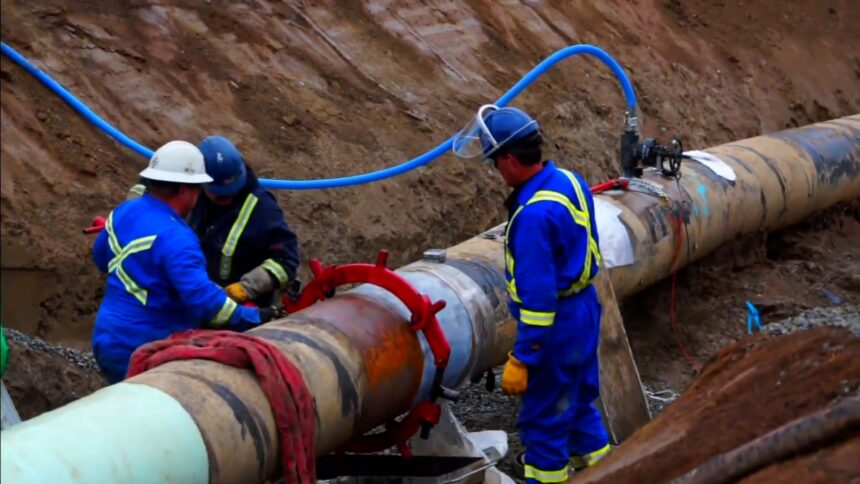
Leave a Comment


